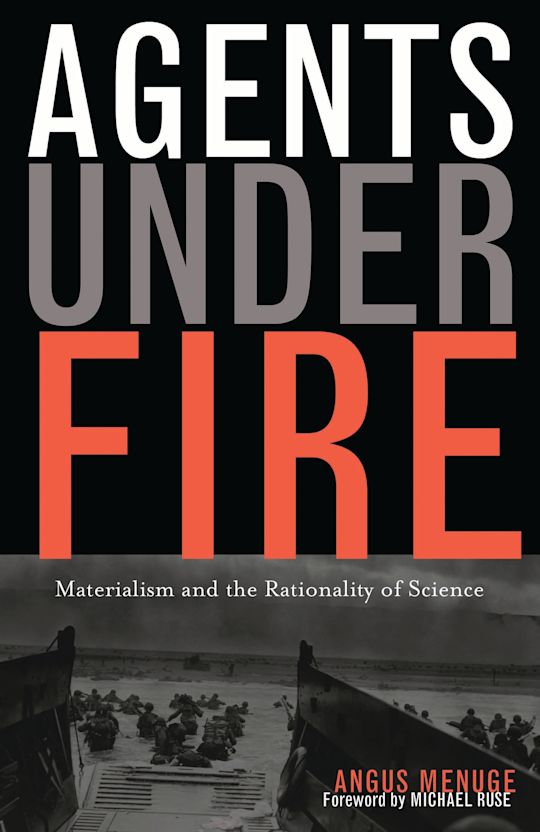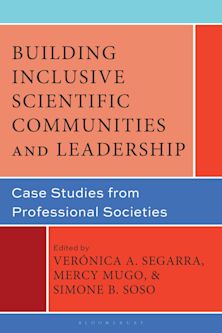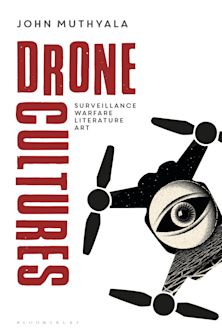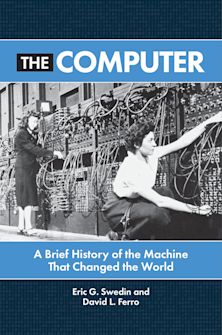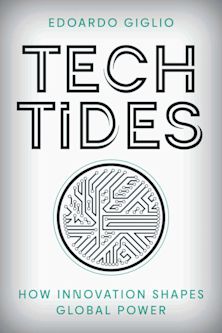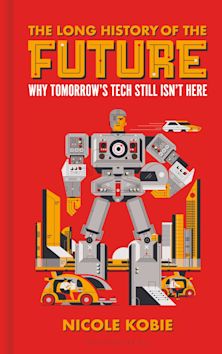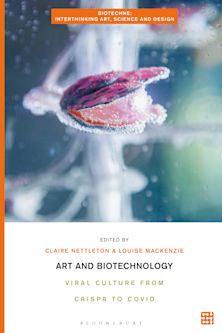- Home
- ACADEMIC
- Science & Technology
- Agents Under Fire
Agents Under Fire
Materialism and the Rationality of Science
Agents Under Fire
Materialism and the Rationality of Science
This product is usually dispatched within 1 week
- Delivery and returns info
-
Free CA delivery on orders $40 or over
You must sign in to add this item to your wishlist. Please sign in or create an account
Description
In the first study of its kind, Agents Under Fire defends a robust notion of agency and intentionality against eliminative and naturalistic alternatives, showing the interconnections between the philosophy of mind, theology, and Intelligent Design. Menuge argues that Behe's irreducible complexity is a challenge to reductionism not only in biology, but also in psychology, and shows the inability of the Darwinian psychology proposed by Dawkins, Dennett, and Steven Pinker to explain the integration, unity, direction, and reliability of rational thought.
This fascinating defense against scientific materialism is the only book-length study relating Intelligent Design to contemporary issues in the philosophy of mind. Drawing on his experience as both a philosopher and a computer scientist, Menuge deftly shows the reader that the materialist's attempts to rid science of all commitment to teleology can only result in incoherence, and presents instead his own unique argument for the legitimacy of Intelligent Design.
Table of Contents
Chapter 2 Preface
Chapter 3 Skyhooks and Cranes: The Challenge of Reductionism
Chapter 4 Strong Agent Reductionism: Materialism and the Rationality of Science
Chapter 5 Weak Agent Reductionism: Science and the Rationality of Materialism
Chapter 6 Bait and Switch: Indirectness and Biological Unity
Chapter 7 The Alchemy of the Mind: Indirectness and Psychological Unity
Chapter 8 Beyond Skinnerian Creatures: A Defense of the Lewis-Plantinga Argument Against Evolutionary Naturalism
Chapter 9 Intentionality, Information and Displacement: The Legitimacy of Design
Chapter 10 Science and Christianity: Dogmatism and Dialogue
Chapter 11 Index
Chapter 12 About the Author
Product details
| Published | Jul 01 2004 |
|---|---|
| Format | Hardback |
| Edition | 1st |
| Extent | 264 |
| ISBN | 9780742534049 |
| Imprint | Rowman & Littlefield |
| Dimensions | 229 x 161 mm |
| Publisher | Bloomsbury Publishing |
About the contributors
Reviews
-
This book moves sharply against the grain of the naturalism and the materialism that dominate contemporary philosophy. It boldly portrays the world as laced with purpose, not just human purpose but divine purpose too. All readers can attend to this adventurous portrayal with very good purpose.
Keith Moser
-
With marvelous clarity and wit, Angus Menuge lays bare the philosophical incoherence of materialism. He clears the fog to show that the universe contains not only matter and energy; it contains agents.
Michael Behe, professor of biochemistry, Lehigh University
-
Philosophical naturalism is frequently advocated as the only doctrine that a scientifically informed intellectual of our time can possibly consider. Angus Menuge has shown, however, that a wide range of powerful considerations can be brought forward against this philosophy. Menuge provides a close examination of leading naturalists such as Dawkins, Dennett, and Churchland, and draws upon a wide range of critics from C. S. Lewis to Michael Behe, to provide what is arguably the most comprehensive critique of naturalism yet to appear. A must-read for naturalists and for their opponents.
Victor Reppert, author of C. S. Lewis's Dangerous Idea
-
In this wonderfully insightful book, Angus Menuge details how intelligent design is systematically dismantling materialism's scientific and philosophical underpinnings. Though for now materialism persists as academic orthodoxy, Menuge's withering attack against it in this book signals a coming sea of change.
William Dembski, author of No Free Lunch and The Design Revolution
-
With marvelous clarity and wit, Angus Menuge lays bare the philosophical incoherence of materialism. He clears the fog to show that the universe contains not only matter and energy; it contains agents.
Michael Behe, professor of biochemistry, Lehigh University

ONLINE RESOURCES
Bloomsbury Collections
This book is available on Bloomsbury Collections where your library has access.









